Dried figs have long been enjoyed for their deliciously sweet and chewy texture. These delectable fruits are not only a tasty snack but also pack a nutritional punch. However, some may be wary of consuming dried figs due to concerns about their sugar content. While it is true that dried figs are high in natural sugars, they offer a range of health benefits that make them a worthwhile addition to your diet. In this article, we’ll explore the nutritional profile of dried figs, debunk common myths about their sugar content, and explain why they can be a healthy choice when enjoyed in moderation. One of the standout features of dried figs is their natural sweetness.
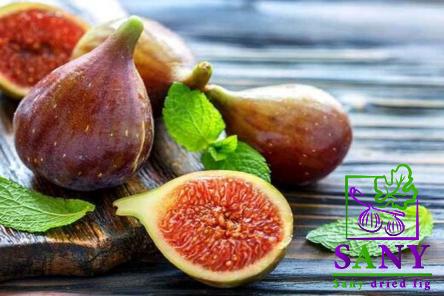
.
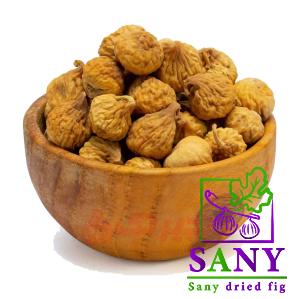 Figs are known for their rich, honey-like flavor, which becomes more concentrated as they are dried. This sweetness comes from the fruit’s natural sugars, primarily glucose and fructose. While it’s true that dried figs are higher in sugar compared to fresh figs, it’s important to note that these sugars are naturally occurring, not added sugars. This means that dried figs provide a sweet taste without the drawbacks associated with refined sugars. In addition to their sweetness, dried figs are a nutrient-dense food. They are a good source of dietary fiber, particularly insoluble fiber, which supports digestive health by promoting regular bowel movements and preventing constipation. Fiber also helps stabilize blood sugar levels by slowing down the absorption of sugar into the bloodstream, making dried figs a satisfying snack that can help curb cravings and keep you feeling full for longer. Furthermore, dried figs are rich in essential nutrients such as vitamins and minerals. They are a good source of potassium, a mineral that plays a key role in regulating blood pressure, muscle function, and fluid balance in the body. Potassium is essential for maintaining heart health and reducing the risk of stroke.
Figs are known for their rich, honey-like flavor, which becomes more concentrated as they are dried. This sweetness comes from the fruit’s natural sugars, primarily glucose and fructose. While it’s true that dried figs are higher in sugar compared to fresh figs, it’s important to note that these sugars are naturally occurring, not added sugars. This means that dried figs provide a sweet taste without the drawbacks associated with refined sugars. In addition to their sweetness, dried figs are a nutrient-dense food. They are a good source of dietary fiber, particularly insoluble fiber, which supports digestive health by promoting regular bowel movements and preventing constipation. Fiber also helps stabilize blood sugar levels by slowing down the absorption of sugar into the bloodstream, making dried figs a satisfying snack that can help curb cravings and keep you feeling full for longer. Furthermore, dried figs are rich in essential nutrients such as vitamins and minerals. They are a good source of potassium, a mineral that plays a key role in regulating blood pressure, muscle function, and fluid balance in the body. Potassium is essential for maintaining heart health and reducing the risk of stroke.
..
 Dried figs also contain significant amounts of calcium, which is important for strong bones and teeth, as well as iron, which is crucial for oxygen transport in the blood. Another notable benefit of dried figs is their antioxidant content. Antioxidants are compounds that help protect cells from damage caused by free radicals, unstable molecules that can lead to inflammation and chronic diseases. Dried figs contain various antioxidants, including polyphenols and flavonoids, which have been linked to reduced inflammation, improved heart health, and lower risk of certain cancers. Despite their nutritional benefits, some people may be concerned about the high sugar content of dried figs. It’s important to understand that natural sugars found in whole foods like fruits are different from added sugars found in processed foods and beverages. The sugars in dried figs come bundled with fiber, vitamins, and minerals that provide a range of health benefits. When consumed in moderation as part of a balanced diet, the sugars in dried figs are unlikely to cause any negative health effects. To put the sugar content of dried figs into perspective, a typical serving size of dried figs (about 1/4 cup) contains approximately 29 grams of sugar. While this may seem high compared to some other fruits, it’s important to remember that dried figs are a concentrated source of nutrients and energy. Enjoying dried figs in small portions as a snack or as part of a meal can be a delicious way to satisfy your sweet tooth while reaping the health benefits they offer. If you’re looking for ways to incorporate dried figs into your diet, there are plenty of delicious options to explore. Dried figs can be enjoyed on their own as a simple and convenient snack, or they can be added to a variety of dishes to enhance their flavor and nutrition. Try sprinkling chopped dried figs over yogurt or oatmeal, adding them to salads for a hint of sweetness, or including them in baked goods like muffins or energy bars. In conclusion, dried figs may be high in natural sugars, but they offer a host of nutritional benefits that make them a worthwhile addition to a healthy diet. From their rich flavor to their fiber, vitamins, and minerals, dried figs provide a wholesome snack option that can satisfy your cravings while supporting your overall well-being.
Dried figs also contain significant amounts of calcium, which is important for strong bones and teeth, as well as iron, which is crucial for oxygen transport in the blood. Another notable benefit of dried figs is their antioxidant content. Antioxidants are compounds that help protect cells from damage caused by free radicals, unstable molecules that can lead to inflammation and chronic diseases. Dried figs contain various antioxidants, including polyphenols and flavonoids, which have been linked to reduced inflammation, improved heart health, and lower risk of certain cancers. Despite their nutritional benefits, some people may be concerned about the high sugar content of dried figs. It’s important to understand that natural sugars found in whole foods like fruits are different from added sugars found in processed foods and beverages. The sugars in dried figs come bundled with fiber, vitamins, and minerals that provide a range of health benefits. When consumed in moderation as part of a balanced diet, the sugars in dried figs are unlikely to cause any negative health effects. To put the sugar content of dried figs into perspective, a typical serving size of dried figs (about 1/4 cup) contains approximately 29 grams of sugar. While this may seem high compared to some other fruits, it’s important to remember that dried figs are a concentrated source of nutrients and energy. Enjoying dried figs in small portions as a snack or as part of a meal can be a delicious way to satisfy your sweet tooth while reaping the health benefits they offer. If you’re looking for ways to incorporate dried figs into your diet, there are plenty of delicious options to explore. Dried figs can be enjoyed on their own as a simple and convenient snack, or they can be added to a variety of dishes to enhance their flavor and nutrition. Try sprinkling chopped dried figs over yogurt or oatmeal, adding them to salads for a hint of sweetness, or including them in baked goods like muffins or energy bars. In conclusion, dried figs may be high in natural sugars, but they offer a host of nutritional benefits that make them a worthwhile addition to a healthy diet. From their rich flavor to their fiber, vitamins, and minerals, dried figs provide a wholesome snack option that can satisfy your cravings while supporting your overall well-being.
…
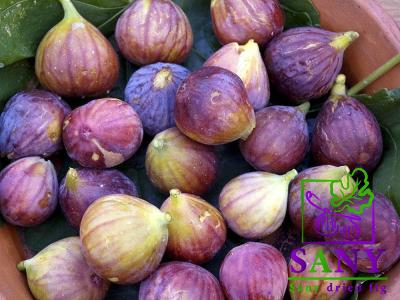 By enjoying dried figs in moderation and as part of a balanced diet, you can indulge in their sweet goodness without guilt. So go ahead, savor the natural sweetness of dried figs and reap the rewards of this delicious and nutritious fruit. Remember, moderation is key when it comes to enjoying dried figs. While they are a nutritious and delicious snack, it’s essential to be mindful of portion sizes due to their natural sugar content. By savoring dried figs in appropriate amounts, you can satisfy your sweet cravings without overloading on sugar. One way to keep your dried fig intake in check is to use them as a complement to other nutrient-dense foods. Pairing dried figs with protein-rich snacks like nuts or cheese can help balance out their sugar content and provide a satisfying and satiating snack. The combination of protein, healthy fats, and fiber from these foods can help slow the absorption of sugar into your bloodstream, preventing sudden spikes in blood sugar levels. Another tip for enjoying dried figs in a balanced way is to incorporate them into meals that contain a variety of nutrient-rich ingredients. For example, adding dried figs to a salad with mixed greens, vegetables, and a source of lean protein can create a flavorful and satisfying dish that offers a balance of macronutrients and essential nutrients. The fiber in dried figs can also help promote feelings of fullness, preventing you from overeating. If you have specific dietary concerns, such as managing blood sugar levels or weight, it’s a good idea to consult with a healthcare provider or a registered dietitian before making dried figs a regular part of your diet. They can provide personalized guidance on how to incorporate dried figs into your eating plan while taking into account your individual needs and goals. In conclusion, dried figs are a sweet and nutritious treat that can be enjoyed as part of a healthy diet. Despite their natural sugar content, dried figs offer a range of health benefits, including fiber, vitamins, minerals, and antioxidants. By consuming dried figs in moderation and pairing them with other nutrient-dense foods, you can indulge in their delicious sweetness without compromising your health goals. So next time you’re craving a sweet snack, reach for some dried figs and treat yourself to a wholesome and satisfying option that not only tastes great but also nourishes your body. With their rich flavor and nutritional benefits, dried figs are sure to become a staple in your pantry and a go-to snack that you can feel good about enjoying. Embrace the natural sweetness of dried figs and let their goodness enhance your well-being one delicious bite at a time.
By enjoying dried figs in moderation and as part of a balanced diet, you can indulge in their sweet goodness without guilt. So go ahead, savor the natural sweetness of dried figs and reap the rewards of this delicious and nutritious fruit. Remember, moderation is key when it comes to enjoying dried figs. While they are a nutritious and delicious snack, it’s essential to be mindful of portion sizes due to their natural sugar content. By savoring dried figs in appropriate amounts, you can satisfy your sweet cravings without overloading on sugar. One way to keep your dried fig intake in check is to use them as a complement to other nutrient-dense foods. Pairing dried figs with protein-rich snacks like nuts or cheese can help balance out their sugar content and provide a satisfying and satiating snack. The combination of protein, healthy fats, and fiber from these foods can help slow the absorption of sugar into your bloodstream, preventing sudden spikes in blood sugar levels. Another tip for enjoying dried figs in a balanced way is to incorporate them into meals that contain a variety of nutrient-rich ingredients. For example, adding dried figs to a salad with mixed greens, vegetables, and a source of lean protein can create a flavorful and satisfying dish that offers a balance of macronutrients and essential nutrients. The fiber in dried figs can also help promote feelings of fullness, preventing you from overeating. If you have specific dietary concerns, such as managing blood sugar levels or weight, it’s a good idea to consult with a healthcare provider or a registered dietitian before making dried figs a regular part of your diet. They can provide personalized guidance on how to incorporate dried figs into your eating plan while taking into account your individual needs and goals. In conclusion, dried figs are a sweet and nutritious treat that can be enjoyed as part of a healthy diet. Despite their natural sugar content, dried figs offer a range of health benefits, including fiber, vitamins, minerals, and antioxidants. By consuming dried figs in moderation and pairing them with other nutrient-dense foods, you can indulge in their delicious sweetness without compromising your health goals. So next time you’re craving a sweet snack, reach for some dried figs and treat yourself to a wholesome and satisfying option that not only tastes great but also nourishes your body. With their rich flavor and nutritional benefits, dried figs are sure to become a staple in your pantry and a go-to snack that you can feel good about enjoying. Embrace the natural sweetness of dried figs and let their goodness enhance your well-being one delicious bite at a time.
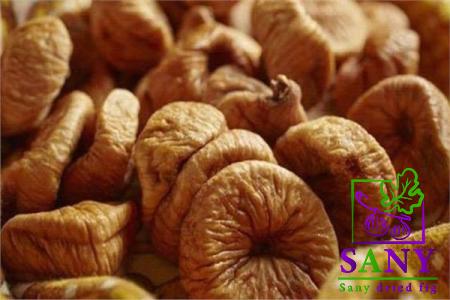

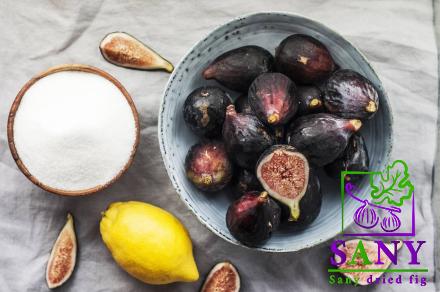
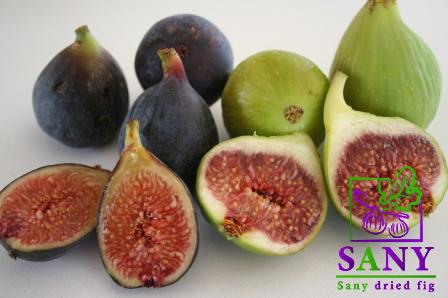


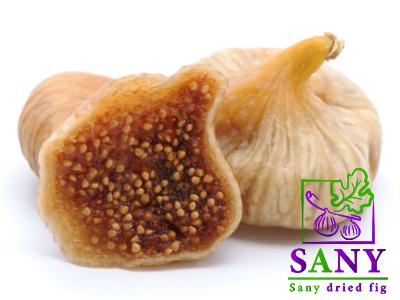
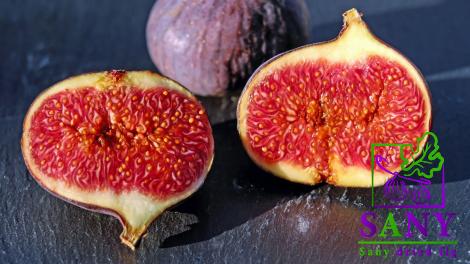
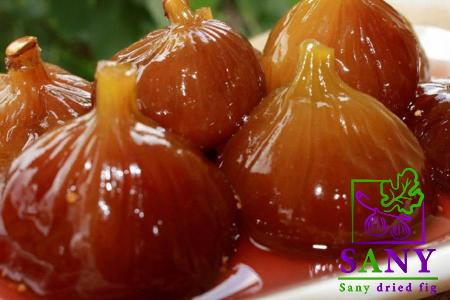
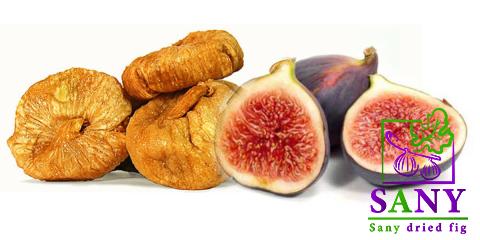
Your comment submitted.